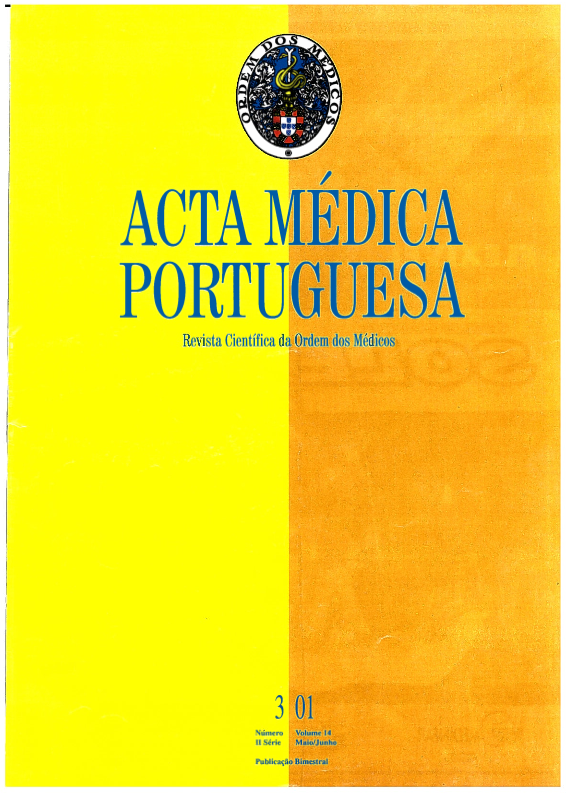Diagnóstico de analfabetismo nos doentes internados numa enfermaria. Estudo prospectivo.
DOI:
https://doi.org/10.20344/amp.1840Resumo
When, at the end of a medical visit, a doctor prescribes medication, he may be unaware that writing is unknown to the patient. This fact compromises the patient's understanding of disease and therapeutics and thus the importance of diagnosing illiteracy. The A.A studied prospectively 200 consecutive patients admitted to a Medical Ward at Santa Maria Hospital in Lisbon, from 13/3/1997 to 8/7/1998. The study included age, gender, social environment, evaluation of the ability to read and write, years of scholarship and the principal diagnosis. The results were to chi 2 (Yates) and Student's T-tests. RESULTS: 94 patients were male and 106 female, aged between 18 and 95 years (mean 62.3), 106 from an urban environment, 54 from a rural environment and 37 had lived their adult life in a rural environment but were at present living in an urban environment. The percentage of illiteracy was 30.5%, being considerably higher in the females (43.4%) than in the males (15.96%), in patients above 65 years (49%) compared to patients from 15 to 64 years old (12%), in non-urban patients (55%) opposed to urban born patients (10.4%). Any of these variables, gender, age and social environments had statistical significance to P < 0.001 when associated to illiteracy. CONCLUSIONS: The comparative analysis of the official results for the general Portuguese Population study, Census 91, shows an important analogy. In both studies illiteracy was worst in females and in those above 65 years of age. Today illiteracy is still days a serious National problem, with important medical implications, a troublesome obstacle to the understanding of the disease and compliance with therapy.Downloads
Downloads
Como Citar
Edição
Secção
Licença
Todos os artigos publicados na AMP são de acesso aberto e cumprem os requisitos das agências de financiamento ou instituições académicas. Relativamente à utilização por terceiros a AMP rege-se pelos termos da licença Creative Commons ‘Atribuição – Uso Não-Comercial – (CC-BY-NC)’.
É da responsabilidade do autor obter permissão para reproduzir figuras, tabelas, etc., de outras publicações. Após a aceitação de um artigo, os autores serão convidados a preencher uma “Declaração de Responsabilidade Autoral e Partilha de Direitos de Autor “(http://www.actamedicaportuguesa.com/info/AMP-NormasPublicacao.pdf) e a “Declaração de Potenciais Conflitos de Interesse” (http://www.icmje.org/conflicts-of-interest) do ICMJE. Será enviado um e-mail ao autor correspondente, confirmando a receção do manuscrito.
Após a publicação, os autores ficam autorizados a disponibilizar os seus artigos em repositórios das suas instituições de origem, desde que mencionem sempre onde foram publicados e de acordo com a licença Creative Commons









